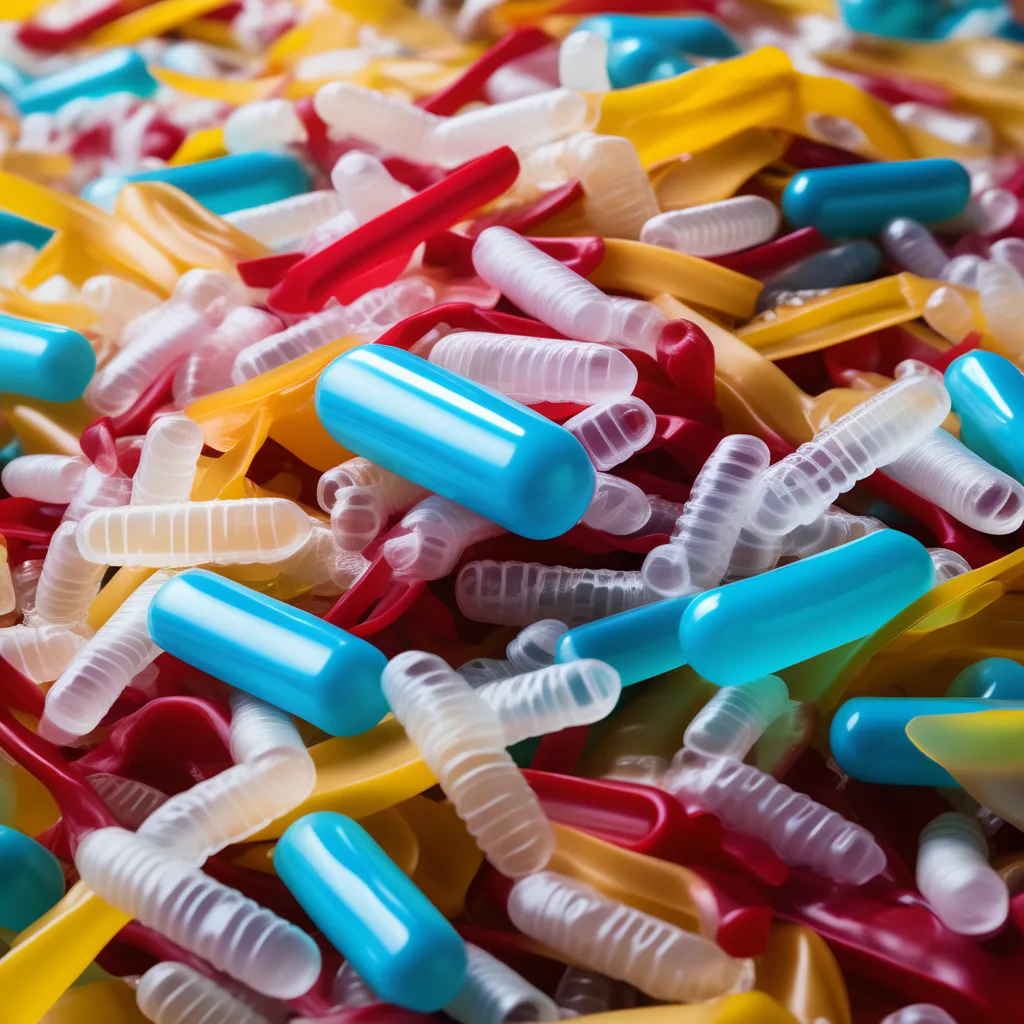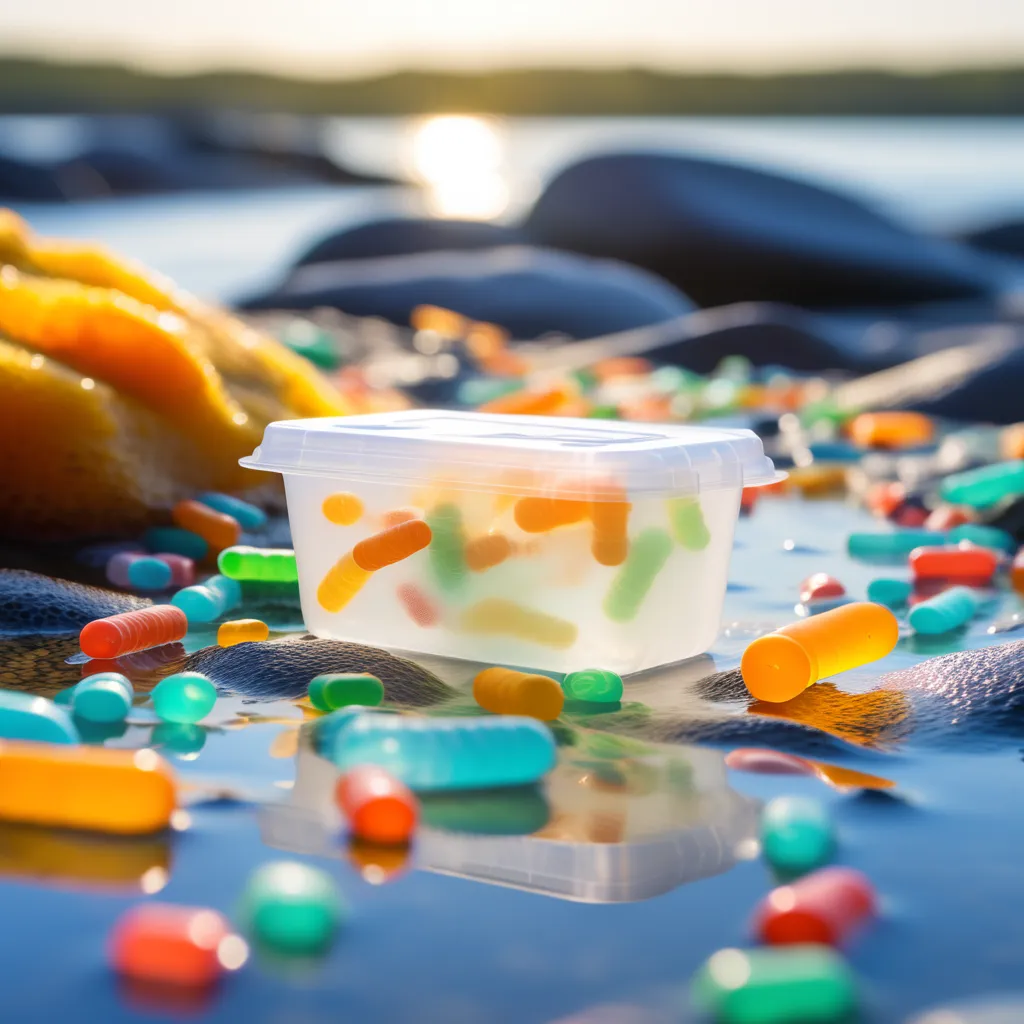Revolutionary Plastic Eating Bacteria Discovered
Plastic pollution has long been a global concern, with plastic waste clogging our oceans, rivers, and landfills. But what if I told you that there's a microscopic superhero in the form of bacteria that is quietly revolutionizing the way we deal with plastic waste? This incredible discovery not only offers hope for a cleaner planet but also reminds us of the remarkable power of nature.

A Childhood Memory
As a child, I remember visiting the beach with my family. The sun, the sand, and the waves were a source of endless joy. But even back then, I couldn't help but notice the plastic littered along the shore. It saddened me to see the natural beauty of the beach marred by this synthetic intruder.
1. A Beach Cleanup Lesson
During one particular visit, my parents decided to organize a small beach cleanup. Armed with gloves and trash bags, we joined other volunteers in collecting plastic bottles, bags, and various debris. It was a valuable lesson in environmental stewardship that stayed with me throughout my life.
2. The Plastic Problem Grows
As I grew older, the plastic problem only seemed to worsen. News reports and documentaries highlighted the devastating impact of plastic pollution on marine life, and I often wondered if there was a solution to this ever-expanding crisis.
The Tiny Heroes: Plastic-Eating Bacteria
Fast forward to today, and the answer to our plastic woes might come from the most unexpected source: bacteria. Scientists have discovered a group of bacteria with the remarkable ability to consume and break down plastic.
1. Nature's Ingenious Solution
Nature has a way of adapting and finding solutions to its own problems, and these plastic-eating bacteria are a testament to that. They've evolved to feed on plastic as a source of energy, turning a human-made pollutant into a meal.
2. How They Work
These microscopic heroes produce enzymes that can digest the chemical bonds in plastic. It's like they have a secret recipe for breaking down plastic waste into harmless byproducts.
A Cleaner Future
The discovery of plastic-eating bacteria opens up a world of possibilities for combating plastic pollution. Here are a few ways in which they are shaping a cleaner future:
1. Recycling Revolution
Plastic recycling has always faced challenges, but with the help of these bacteria, we could potentially see a recycling revolution. Plastic waste that was once considered unrecyclable may find new life as a food source for these microscopic recyclers.
2. Cleaner Oceans
Our oceans have borne the brunt of plastic pollution, with vast garbage patches accumulating in various parts of the world. With the introduction of plastic-eating bacteria, we could witness a gradual reduction in these marine plastic hotspots.
3. Landfill Relief
Landfills overflowing with plastic waste could benefit from this breakthrough. As plastic materials are broken down into harmless components, the burden on landfills may be significantly reduced.
The Road Ahead
While the discovery of plastic-eating bacteria is undoubtedly a game-changer, there is still much work to be done. Scientists are exploring ways to harness these bacteria on a larger scale and integrate them into waste management systems.

1. Biodegradable Alternatives
In addition to harnessing the power of these bacteria, researchers are also focused on developing biodegradable plastics that are easier on the environment. This combination of nature's solution and human innovation holds great promise.
2. Individual Responsibility
As we celebrate this breakthrough, it's important to remember that individual actions matter. Reducing single-use plastic consumption, recycling diligently, and supporting eco-friendly initiatives are steps we can all take to complement the efforts of these plastic-eating bacteria.
In conclusion, the discovery of plastic-eating bacteria is a remarkable reminder that nature often provides the solutions to the challenges we create. It's a testament to the resilience and adaptability of life on Earth. As we continue to learn from and work alongside these microscopic heroes, we move one step closer to a cleaner, more sustainable future.

No comments:
Post a Comment